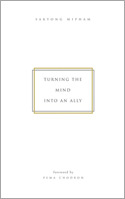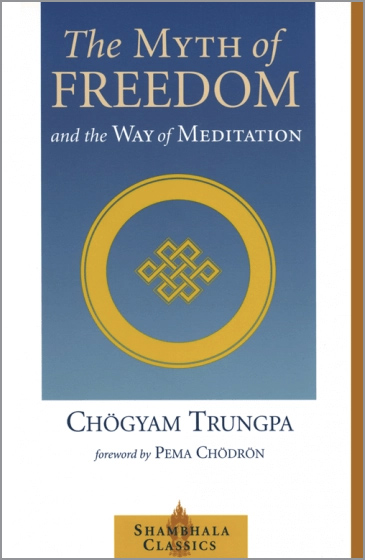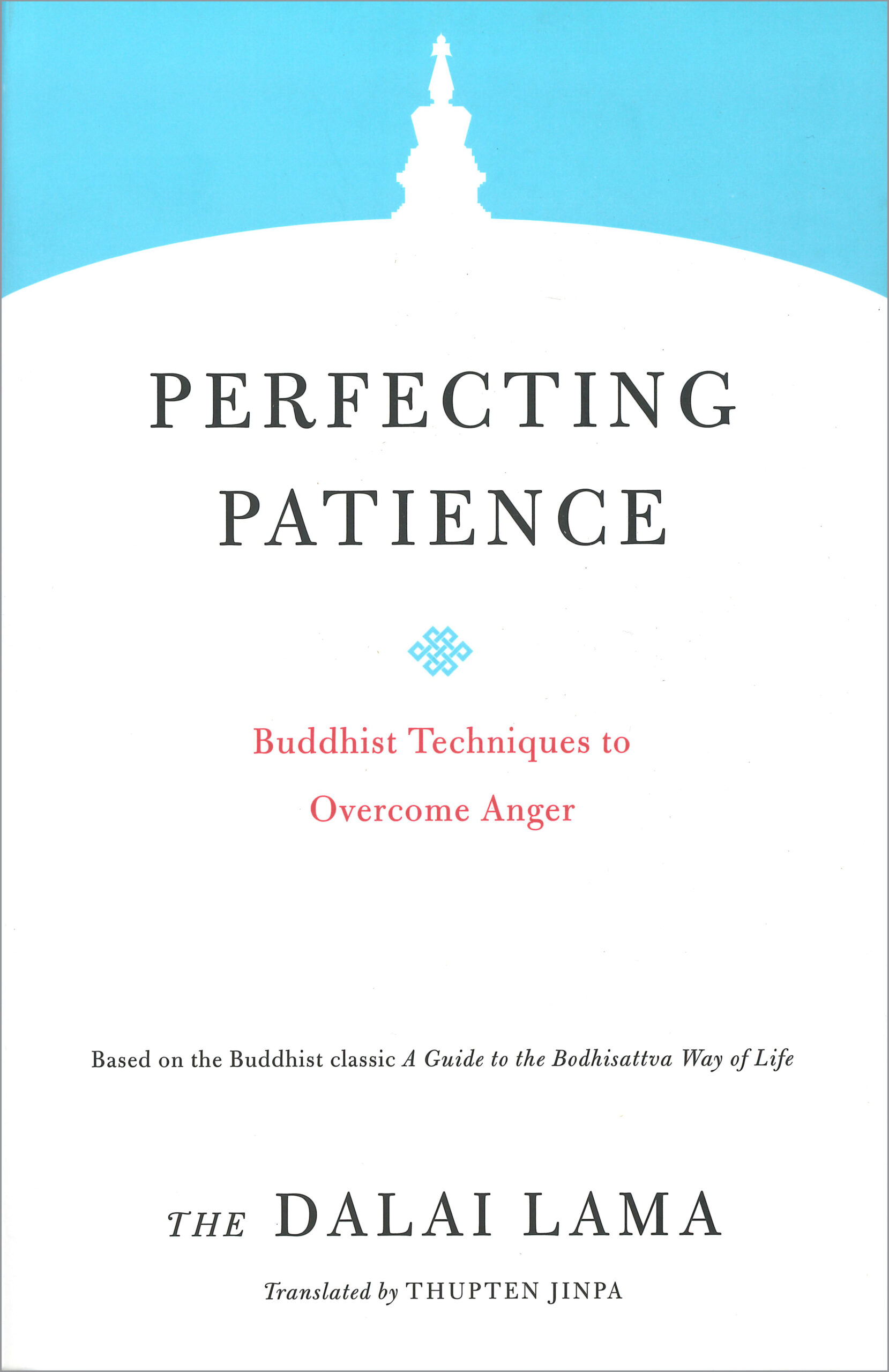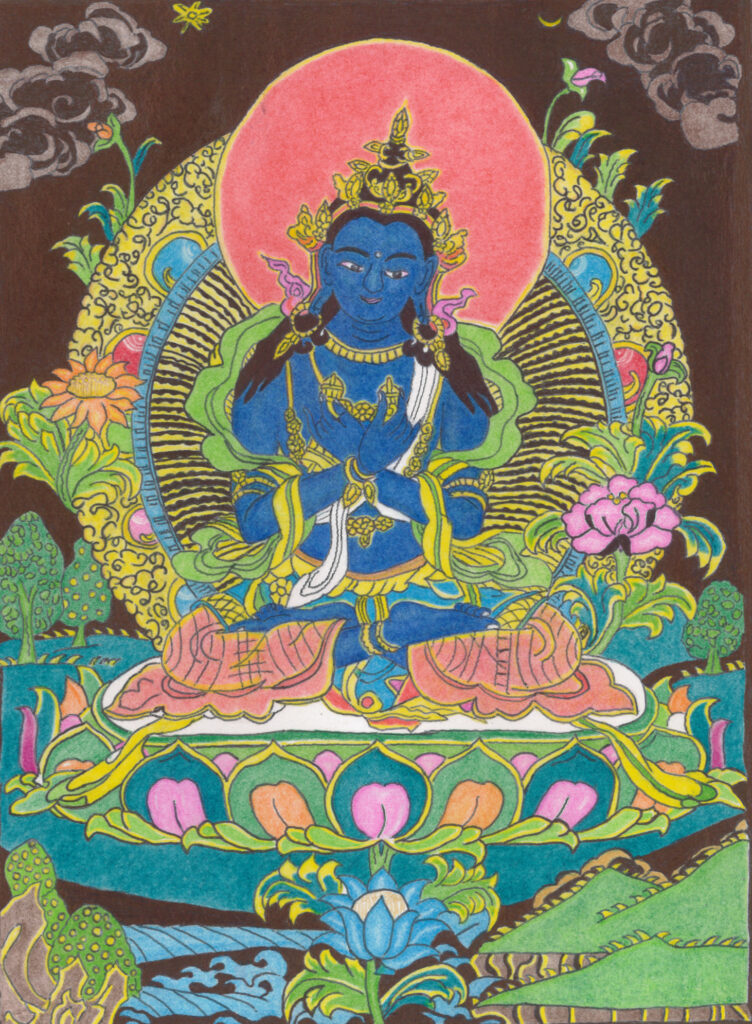Ratna Peace Initiative offers without charge three courses in Buddhist Studies for prison inmates. Each course features a Buddhist text for study and a source book we’ve made containing additional teachings to supplement it. The courses are divided into a number of sections containing an introductory letter and a set of questions. The student has to study the book to answer the questions and then send them into RPI where our instructors review and comment on each answer, as well as write back a personal letter to the student about their work. We also send standardized comment sheets that provide additional information on each topic in that section. When the student finishes the course, we send them a certificate of completion they can take to the parole board as a credential for their parole request.
To receive course content, please send an email to info@nullmindfulnesspeaceproject.org.
 The succession of courses offered in the RPI program begins with Turning the Mind into an Ally, based on the text of the same name by Sakyong Mipham Rinpoche. This course is an introduction of why and how to meditate. This book blends a philosophically savvy explanation of why meditation is necessary with an artful and accessible introduction to the basics of meditation. This course is a practical, in-depth introduction to sitting meditation. It gives the student contemplative tools for deepening his or her understanding of the Buddhist teachings, encouraging the development of a compassionate, open attitude towards oneself and others.
The succession of courses offered in the RPI program begins with Turning the Mind into an Ally, based on the text of the same name by Sakyong Mipham Rinpoche. This course is an introduction of why and how to meditate. This book blends a philosophically savvy explanation of why meditation is necessary with an artful and accessible introduction to the basics of meditation. This course is a practical, in-depth introduction to sitting meditation. It gives the student contemplative tools for deepening his or her understanding of the Buddhist teachings, encouraging the development of a compassionate, open attitude towards oneself and others.
 The second course, The Myth of Freedom, based on the text of the same name by Chogyam Trungpa Rinpoche, addresses our tendency to allow our habitual patterns to create knee-jerk responses according to preconditioned habits … and how doing that makes our sense of choice and freedom a “myth.” Rinpoche presents the entire Buddhist path from the perspective of meditation. The book examines in detail states of confusion, how to work with difficult emotions, and how to cultivate a sane, genuine relationship to daily activities and other people.
The second course, The Myth of Freedom, based on the text of the same name by Chogyam Trungpa Rinpoche, addresses our tendency to allow our habitual patterns to create knee-jerk responses according to preconditioned habits … and how doing that makes our sense of choice and freedom a “myth.” Rinpoche presents the entire Buddhist path from the perspective of meditation. The book examines in detail states of confusion, how to work with difficult emotions, and how to cultivate a sane, genuine relationship to daily activities and other people.

Our third course, The Power of Patience: Healing Anger, studies the chapter on patience from a classic Buddhist teaching, The Way of the Bodhisattva by Shantideva. We use a commentary by the Dalai Lama called Perfecting Patience. It explores in great detail the destructive qualities of anger and how they can be countered by developing patience. It offers an expansive view of how to understand and work with difficult people and harsh circumstances, transforming conflict and emotional challenges into spiritual awakening.
.
From a Colorado inmate, finishing the last of our three Buddhist courses:
“Besides the spiritual development these courses offer, it was just amazing how taking these courses eased the suffering of being locked up in an unfair judicial system. The interaction all these months provided comfort/support when family/friends failed miserably. Thank you!!!”
From an inmate in New Jersey:
“Every day, when I sit down to work out these lessons, I am grateful for the courses that you have provided. It has helped me tremendously, especially these past few years, to deal with the obstacles that come my way. Who knows how much suffering I would have inflicted on myself if it weren’t for having a better understanding of the teachings and how to put them into practice.”
From an inmate in California:
“Getting my work back, seeing how I have developed, and then to get feedback from my teachers makes me feel the worth, the acknowledgment that I’m not doing this work for nothing, I’m actually being guided. I’m so truly grateful for all of it and your time … I want to thank the sangha for your warming guidance. You have been instrumental in my life, bringing so many lamps to the darkness of my path that I’m now devoted to practicing in this lifestyle. Learning to let go of attachments, everything becomes a meditation practice with my daily activities. I suffer through anxiety, and this has helped me tremendously.”
From an inmate in California:
“I truly appreciate the lessons, the feedback, and the thought and care that goes into your program. I recognize that none of these materials are free, and that you and your materials are free, and that you and your other volunteers’ time is precious. You are all profoundly awesome people, and I feel in your eternal debt. You have helped to transform an isolated prisoner into a being trying to walk the path.”

Vajradhara – Prisoner Art by Ronnie B.